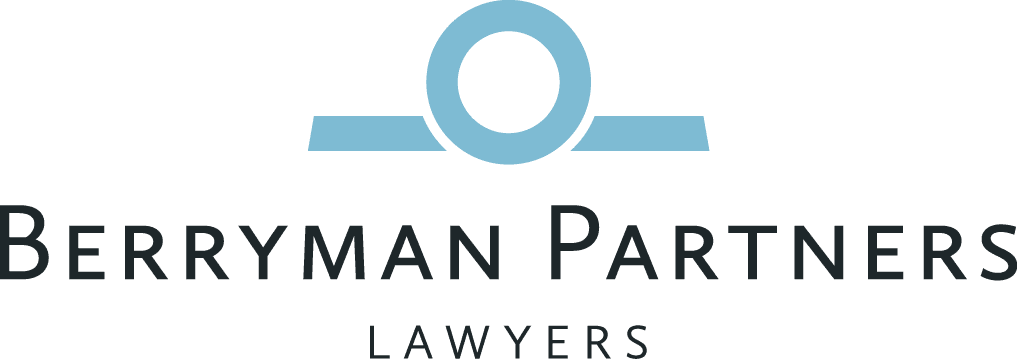Getting your foot on the property ladder can be overwhelming for first home buyers, particularly in the current fast paced market. Saving for your deposit is only step one in the process. Once you’ve exchanged contracts, the money you need to spend on settlement, isn’t just limited to the balance of the purchase price.
We liaise with our clients to let them know the full costs payable on settlement and how this is broken down but so this doesn’t take you by surprise, here is a rundown of the costs you will pay on settlement that you may not have thought about.
1. Loan Application Fees
When looking at the mortgages out there, don’t just look at the interest rates payable. Your home loan package may include several costs including fees for applying for your loan. These can be several hundred dollars. You may also be charged a valuation fee, i.e. a cost for a professional to value the property to ensure that it provides sufficient security for the bank. Some banks don’t pass on these fees at all, whilst others do charge their customers for the expense.
How much are you borrowing? If it’s more than 80% of the total purchase price, the bank will charge you lenders mortgage insurance or LMI (yes that’s what that acronym is that you keep hearing). It provides your bank with security in the event you cannot repay your mortgage. It can be quite expensive depending on the size of the deposit and your lender’s loan terms and conditions.
Thankfully, the First Home Loan Deposit Scheme is in place until 20 June 2022. This scheme was open to 10,000 first home buyers. It is a government scheme whereby the government guarantees the performance of your loan so that the bank does not require LMI. Speak to your banker or broker about your eligibility for this scheme.
2. Pest and Building Inspection / Strata Report
Unless you’re a builder or in the construction industry, you will only be able to tell whether the property looks OK visually. It’s not unusual for vendor’ to carry out cosmetic works pre-sale to try and cover up any problems, cracks or faults with the property.
Your first home is a big investment so you naturally want to sleep easy that your property is in good condition or if not, a condition you consider fair for the property’s appearance and price.
The report will tell you whether there is any damage or defects which could require major (ahem expensive) rectification works later. You want to do this before you are locked into the contract, so it is usually done either prior to exchange or during the cooling off period.
A report will cost several hundred dollars but may save you money and heartache in the future. We can recommend someone if you don’t have the names of professionals who conduct this for you.
3. Registration Costs
The transfer of your property is registered with NSW-LRS. They unfortunately charge you a fee for this privilege. Your bank will also register a mortgage on title. This too incurs a fee and your mortgagee will undoubtedly pass this fee on to you. Fees are in the vicinity $147.70 for each dealing registered. A transfer and mortgage count as two dealings.
4. Stamp Duty
This is the biggest cost for purchasers after the purchase price and can be a real dealbreaker if you haven’t budgeted for it.
The First Home Buyer’s Assistance Scheme is still running and is applicable to prospective first home purchasers looking to buy an existing property, new home or vacant land. There are caps on the scheme and whether you are eligible for it, will depend on your purchase price.
You do not have to pay stamp duty if you are purchasing a new home valued at $800,000.00 or less, an existing home for $650,000.00 or less, or a vacant block of land for $400,000.00 or less. Reduced rates of duty apply for purchases of new homes between $800,000.00 and $1m, existing homes valued between $650,000.00 and $800,000.00 and vacant land worth $400,000.00 to $500,000.00. The rate of duty payable is dependent on the purchase price of the property.
To be eligible, neither you or your partner can own, or have previously owned, property in Australia before. You must move into the property you are looking to buy within 12 months of purchase and live there for a period of at least six continuous months. If you are a member of the Australian Defence Force, the living requirements do not apply to you, provided you and everyone you are buying with are on the NSW electoral roll. There are further eligibility and requirement criteria which we can clarify for you.
5. Home and Contents Insurance
This doesn’t take effect until settlement, but if you are taking out a mortgage, your bank will want to know that the property will be insured as a condition of your finance.
This will involve you taking out a policy of building insurance before settlement. Many people take out contents insurance whilst they are at it.
Premiums and coverage levels can vary widely so it pays to shop around and work out what works best for you.
6. Legal Fees
Purchasing your first home is one of the biggest investments you will ever make. It therefore pays to obtain sound legal advice. We will step you through the pre-exchange process and exchange. Once contracts have exchanged, we work with you to ensure that the property transfers into your name smoothly. These fees are paid on settlement.
You may have heard us talk about disbursements. These are fees we incur on your behalf for a service from a third party which will include reports enabling us to complete your matter. It will also include PEXA fees. PEXA is the online forum where settlement takes place. They charge a fee to let us use this service which start at $117.92.
7. Rates and strata Fees
In addition to home insurance and maintenance costs, home ownership also means you have the added joy of paying Council and Water rates. Your Council rates cover local services such as community services, sporting and recreation services, environmental planning, public health, environmental protection and waste collection, treatment and disposal.
If you are purchasing in a block of townhouses, units or apartments you will also likely have to pay strata levies. These are payments that go towards the communal costs of your strata development. This could include cleaning of the communal areas and the costs of building maintenance.
The agent will be able to tell you the costs of the rates and/or strata levies.
Rates and Strata levies are paid periodically in installments so you will find that we talk about rates adjustments. These may involve reimbursing the vendor for rates payments they have paid for the quarter, a portion of which includes the post-settlement period. Whatever happens you can rest assured that you won’t be receiving an account until the next billing cycle and we will make sure that you are not responsible for any of the vendor’s unpaid rates. This will be sorted on settlement.
8. Moving Costs
Settlement day is fast approaching here comes the fun/stressful part. Your moving costs will depend on how you go about moving. Even if you don’t use professional removalists (which may cost you thousands of dollars) you may still need to hire a van/ute to move your precious stuff. If you’re moving into somewhere that’s ‘pre-loved’ (to put it politely), you might also want to factor in that cleaning products, sugar soap and paint do all cost something. Get familiar with your local Bunnings and the fact you will be handing them a chunk of your weekly pay for the duration of your renos.
If you are looking at buying your first home, Contact Us on (02) 4943 3988 to speak to one of our property lawyers. We have years of experience helping conveyancing clients throughout the Newcastle, Lake Macquarie and Hunter region.
This blog was written by,
Chris Berryman
Chris practises in the areas of Conveyancing and
Business & Commercial Advice








